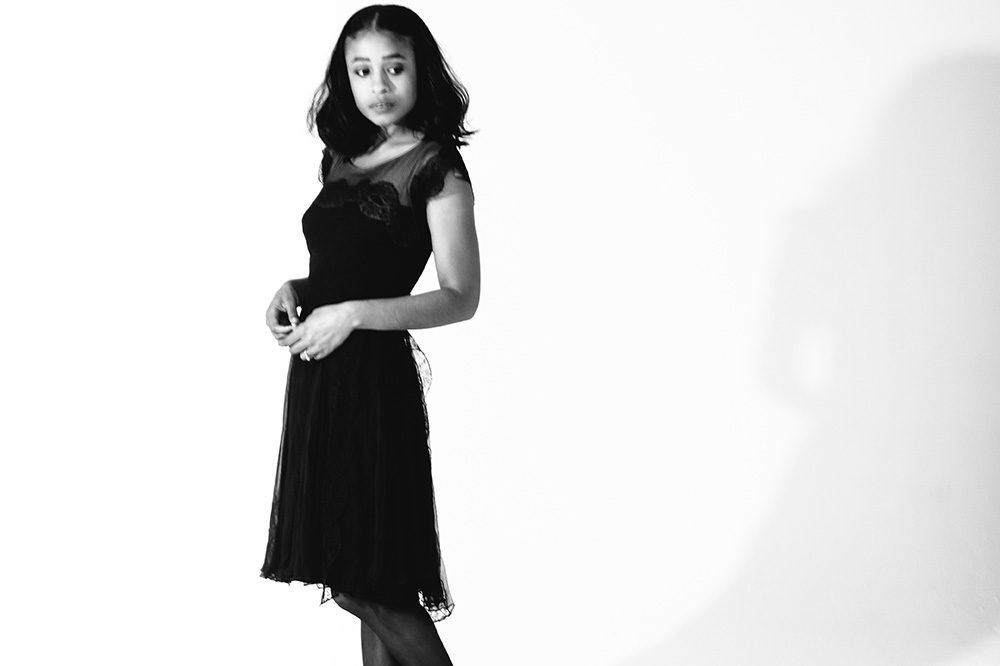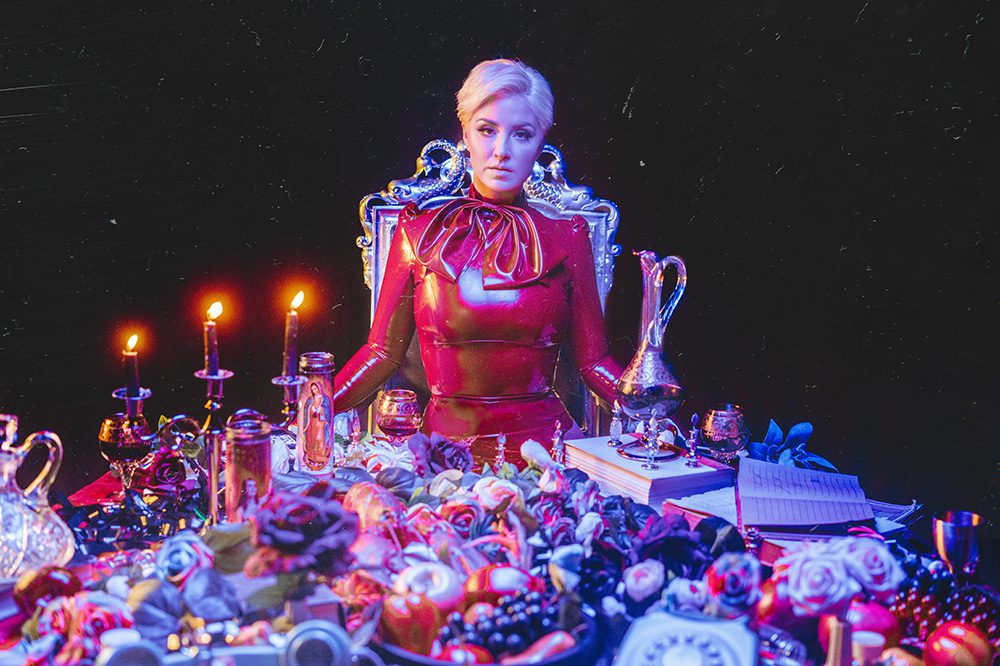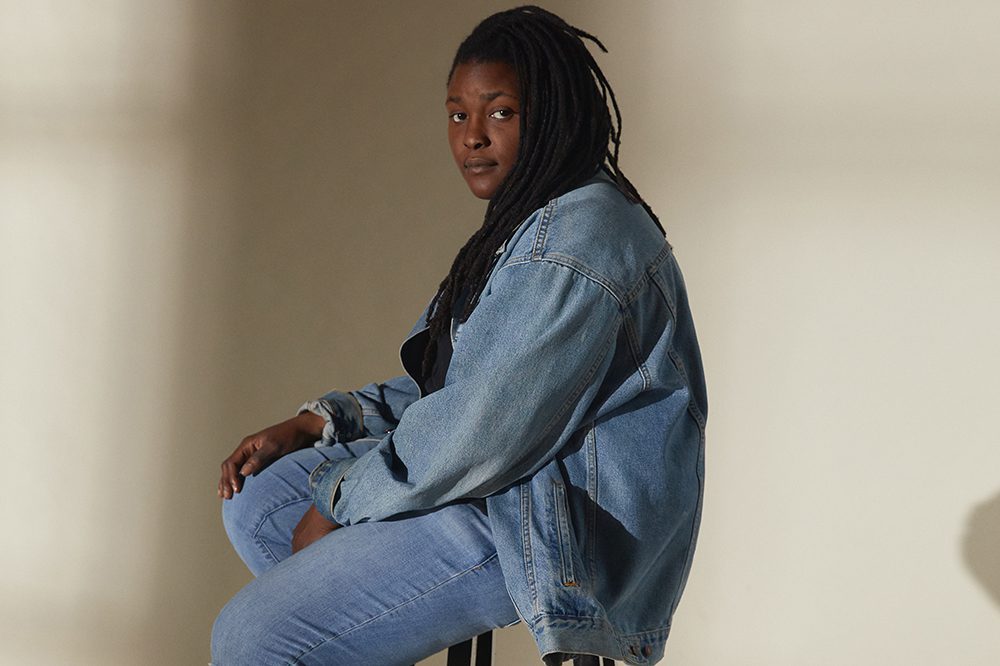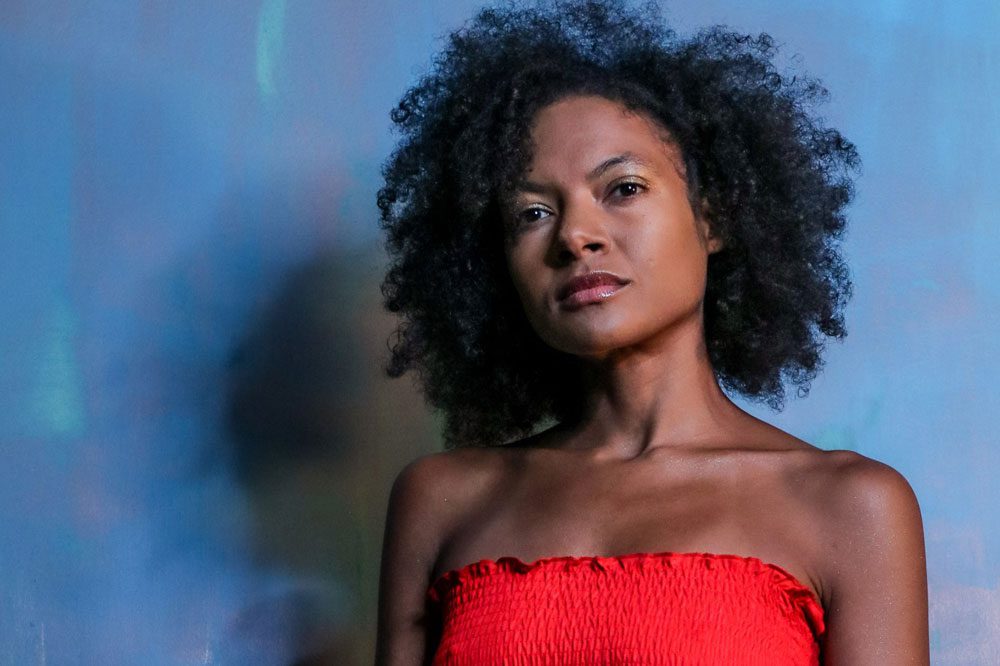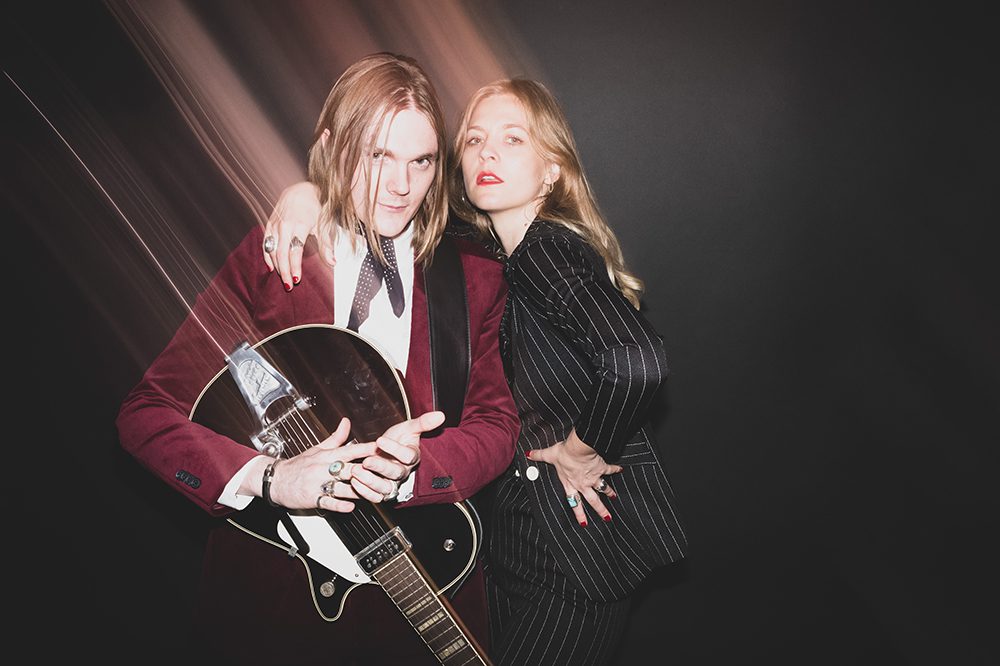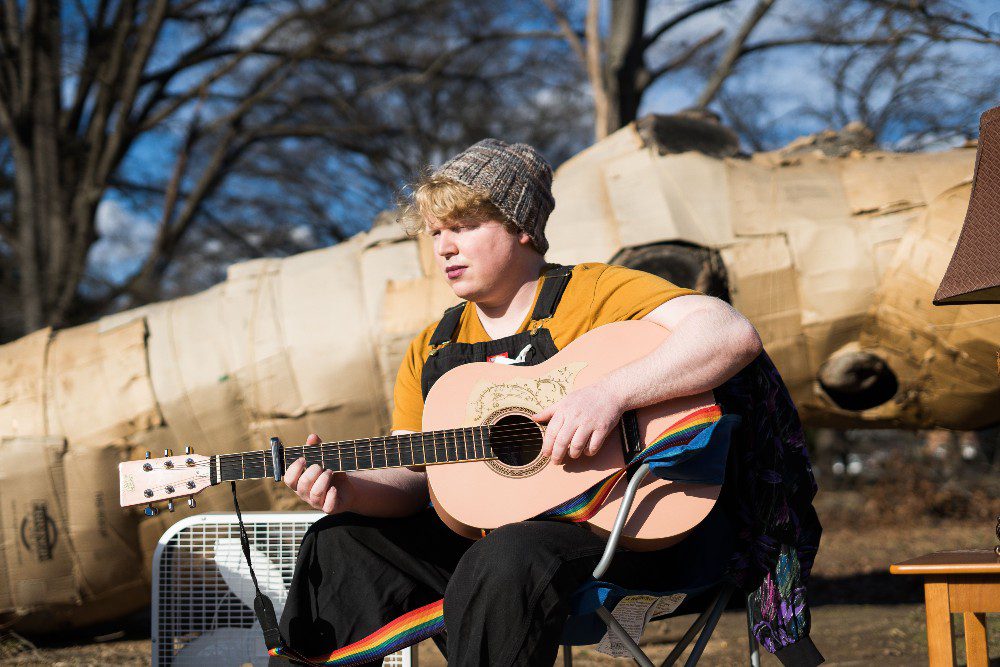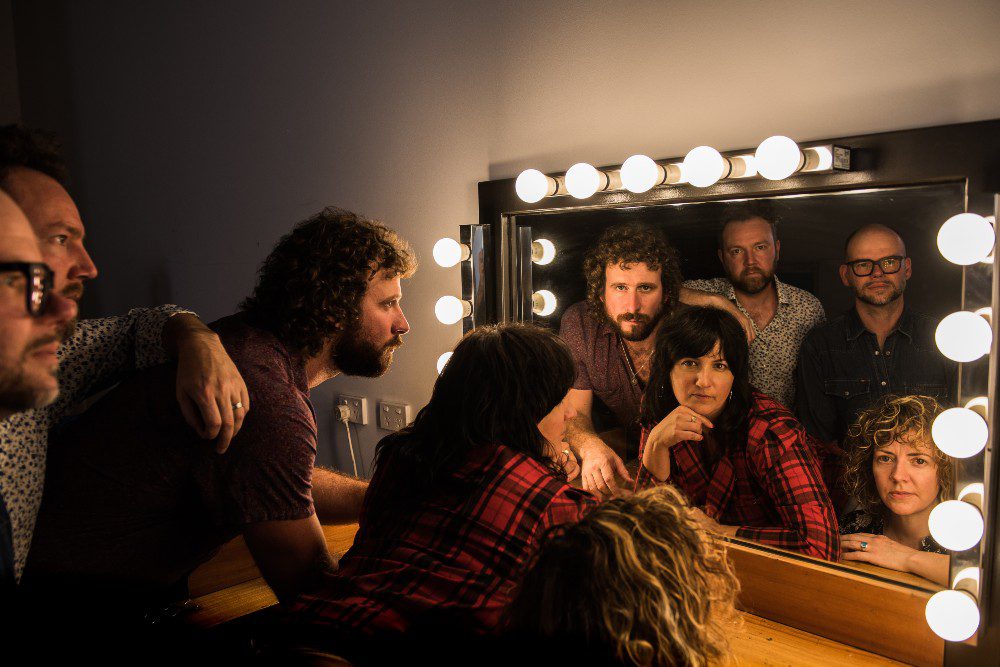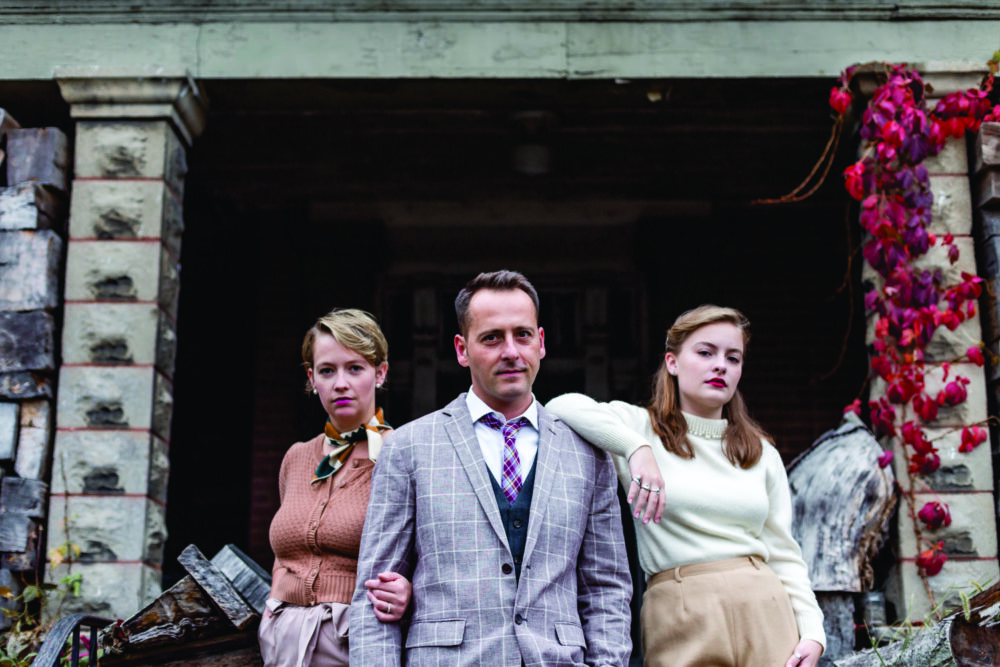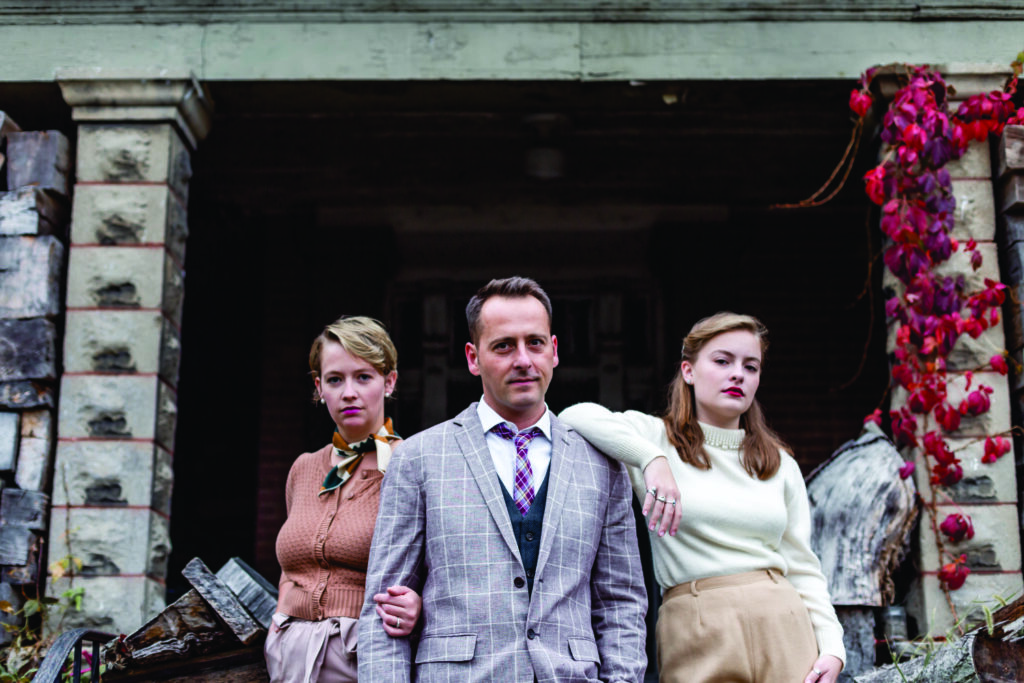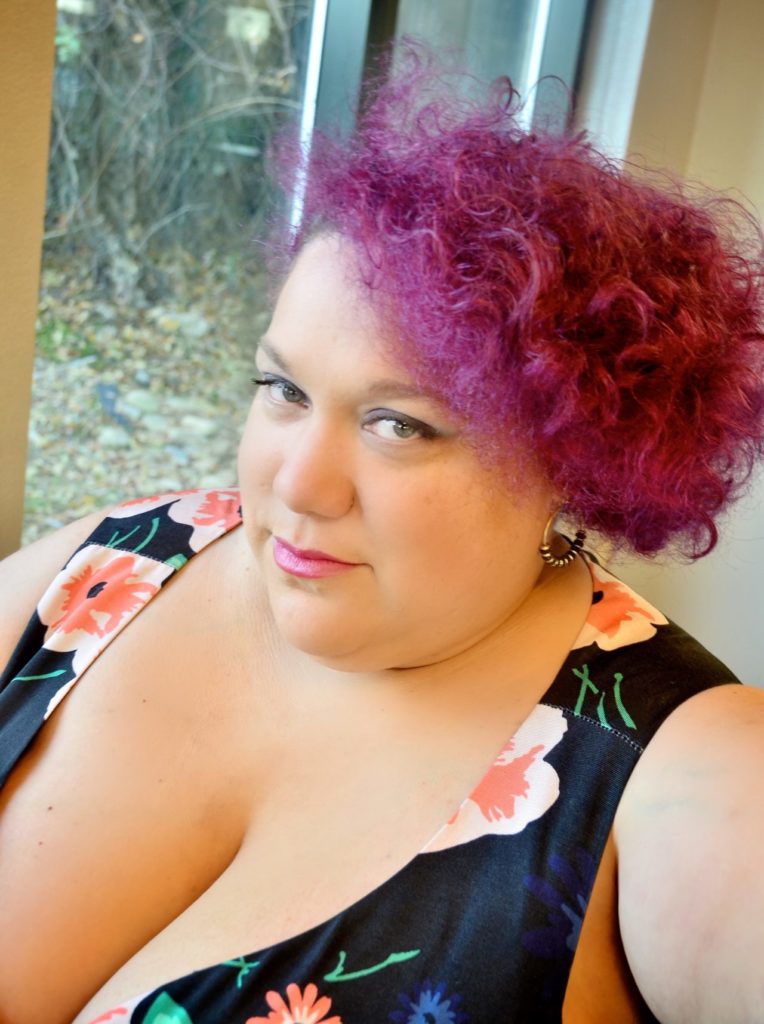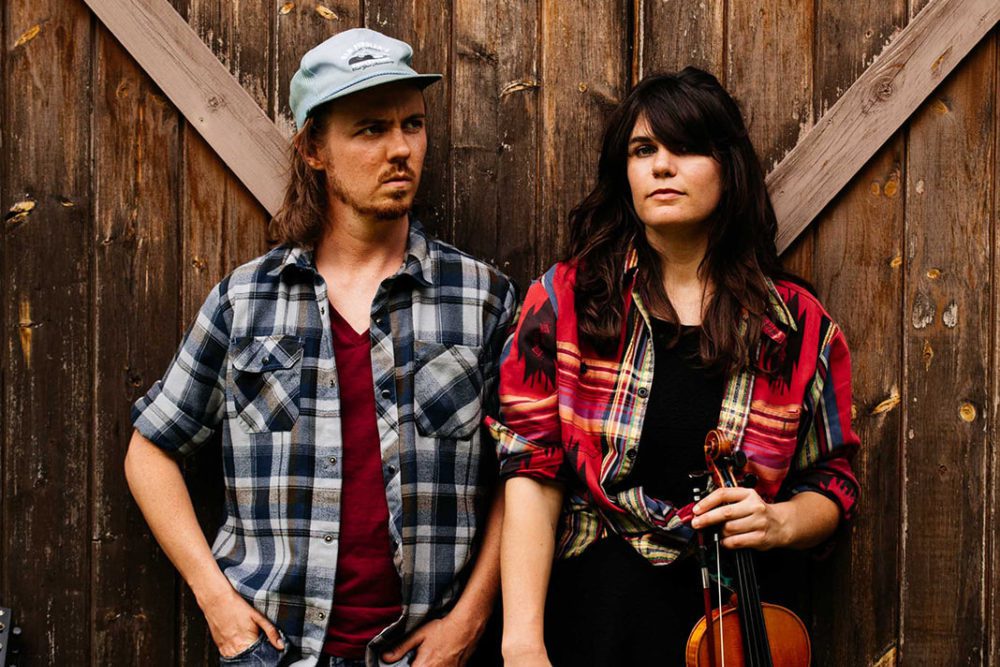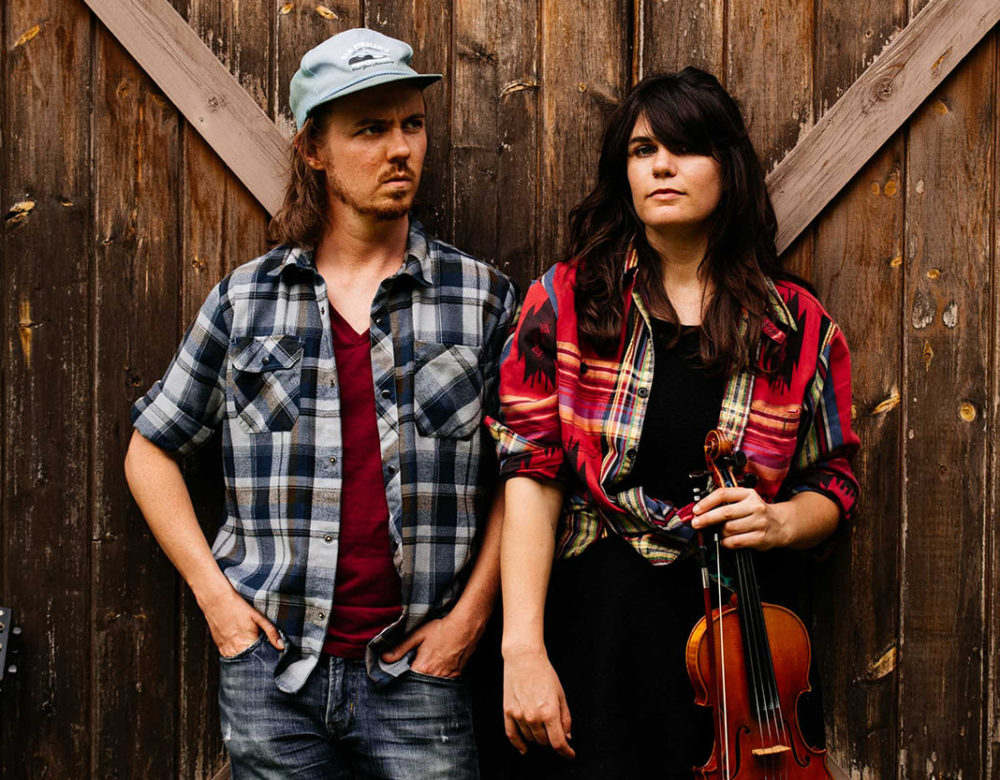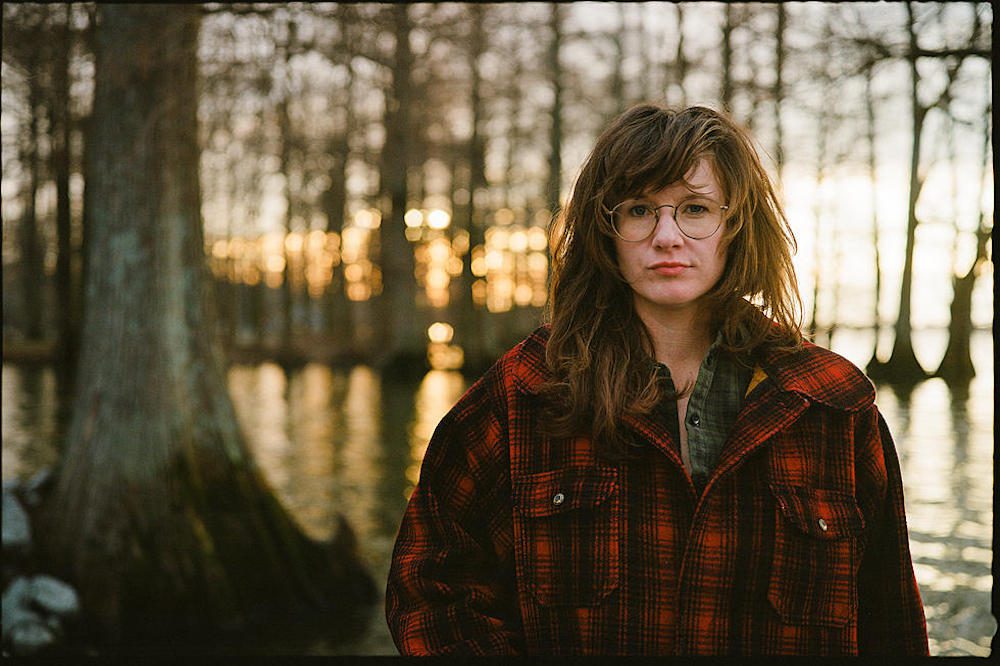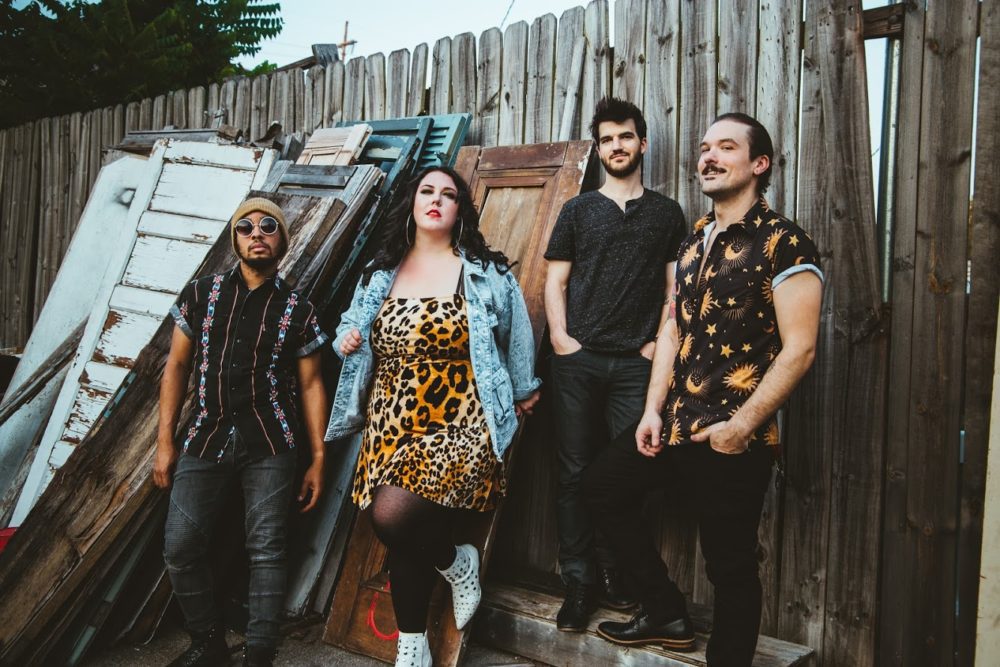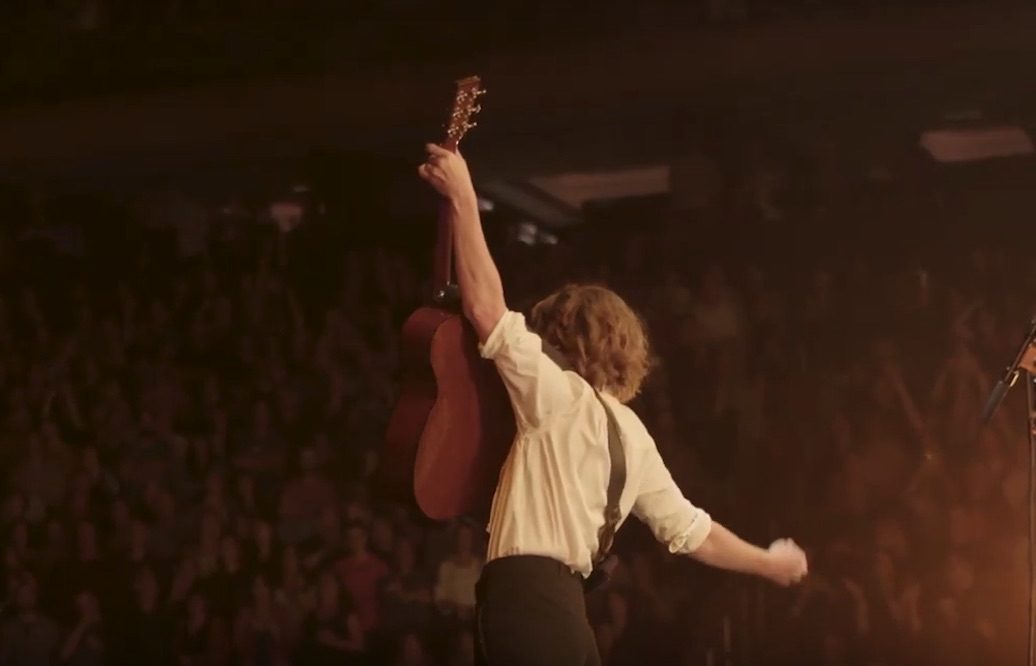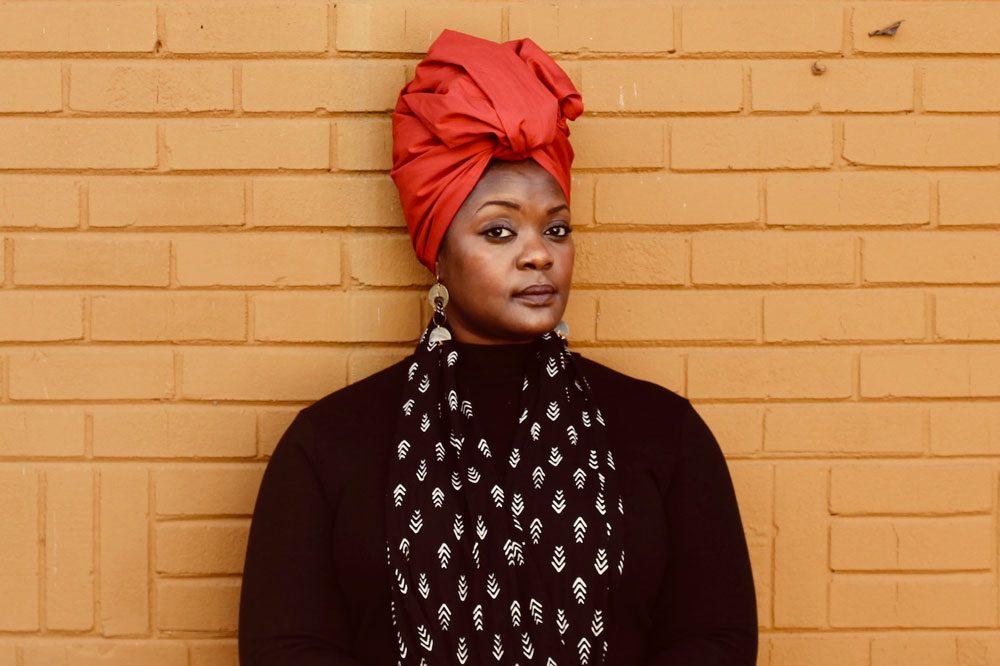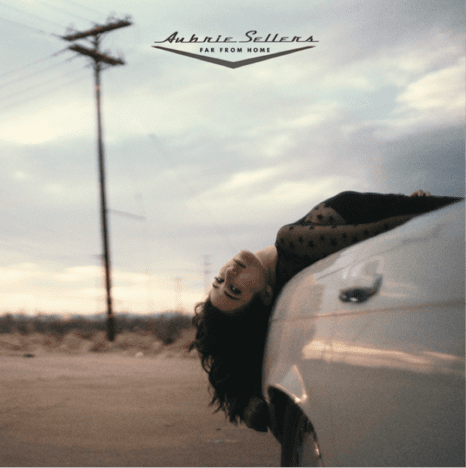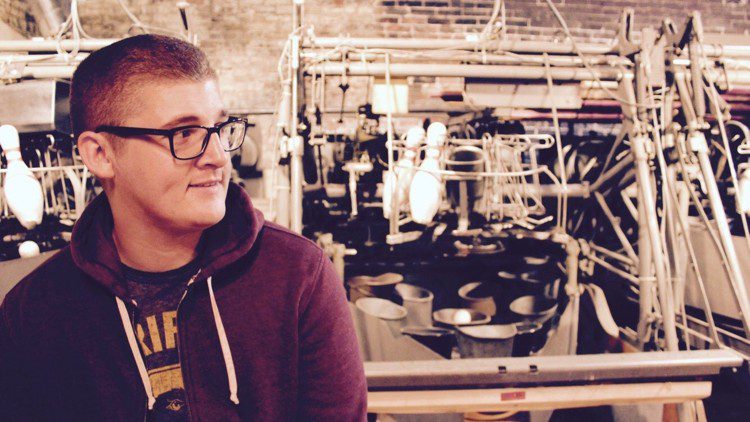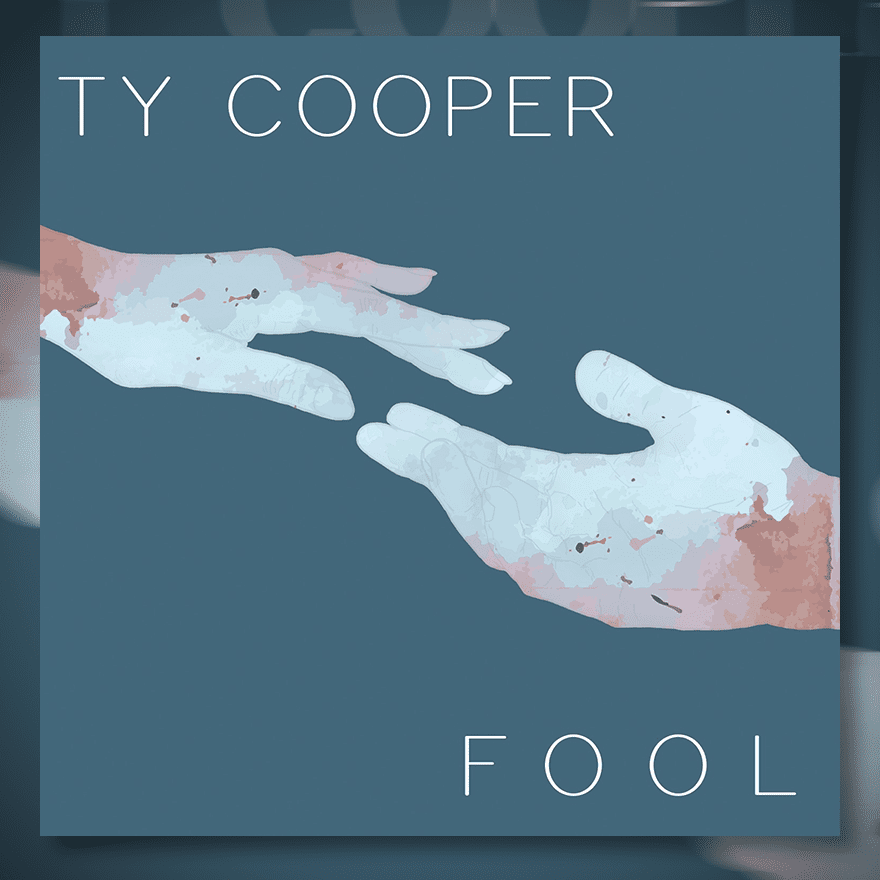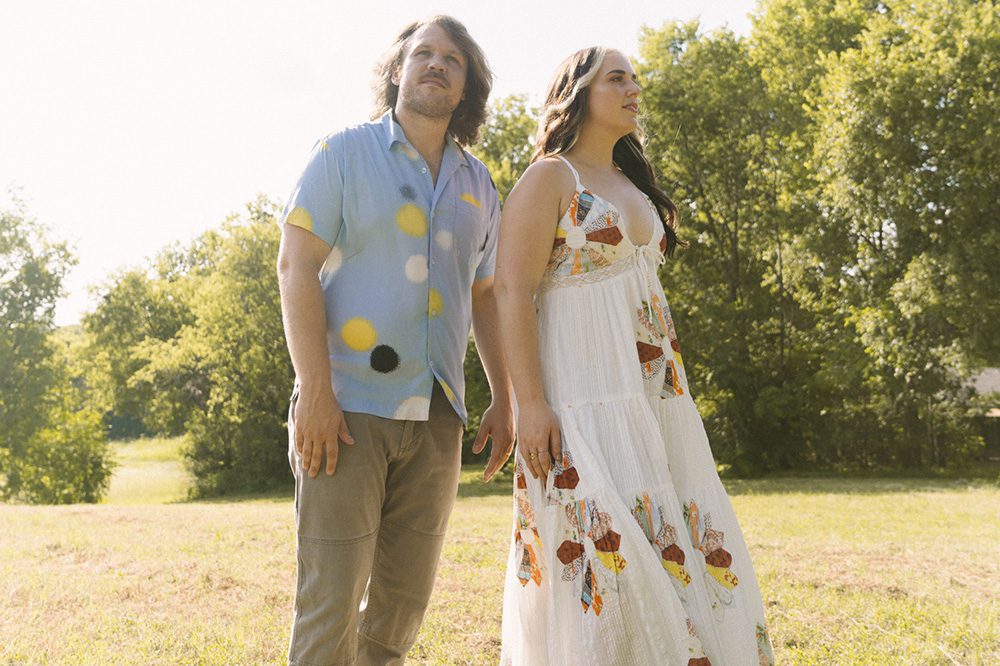

In the studio video for “Voicemails,” duo Beth // James strike a balance between vulnerability and strength.
The song was penned by the husband-and-wife duo of Mikaela and Jordan Burchill, an indie-Americana duo based out of Austin. Mikaela’s father passed away in 2019 and one day, she found herself going through old voicemails on her phone left by her late father. Hearing the sound of his voice saying “Call me when you get a chance” acted as a trigger that prompted the singer to write the personal song.
“I always save voicemails on my phone of people who I love in my life. I saved a bunch of voicemails from my dad and I hadn’t anticipated needing to use them so soon,” Miakela expresses to Audiofemme in a phone interview. “I was having a really rough day and I listened to one of them and it totally wrecked me, and then I wrote this song about it. It’s a song packed full of memories about him. I was thinking about all of the things that we’ve done together and that remind me of him and made him who he was.”
“Voicemails” details all the nuances that made her father memorable, from reading the morning paper on the back porch with coffee (or whiskey) in his mug, to the story he’d frequently tell about the time he saw a young James Taylor perform in a coffee shop. But the song takes an emotional turn in the chorus as Mikaela professes with tender, yet passionate vocals, “I wish that I could call you back/Oh I wish it was as simple as that/Oh I wish that life was fair/But you’re not really there.”
Mikaela notes that while it was easy to write the lyrics, they proved challenging to sing – she admits breaking down in tears while in the recording studio. “Trying to sing about that from an honest place, it’s hard. You got to do it and get through it,” she says with a laugh. “We do like to have a positive spin, even on sad songs like this, and I think the positive message in this one is that you should remember the people that you’ve lost and think about the memories that you’ve had with them. That’s good thing to do and that’s a healing thing to do.”
“It’s always going to be a hard song to sing and a hard song to write, but I wanted her to feel great about it,” adds co-writer Jordan, who considered himself a support system as Mikaela released these emotions through song. “I love my wife and it was hard watching her having to do that because they’re all lyrics that hit home. Watching her record the vocals for the album was tough.”
The couple gives the song new meaning with a live performance of “Voicemails” at Studio 1916, premiering exclusively with Audiofemme. Filmed in a house in Kyle, TX (just south of Austin) more than a hundred years old, the duo takes the song inside the sacred space and gives it a stripped down spin. With the camera panning slowly throughout the room, each musician gets a moment to shine in the soft lighting that bounces off the old-fashioned wood paneling, checkered curtains and eclectic tapestries on the wall. “We wanted it to be very real. We wanted to have a representation of the song that was somewhat like the album – a bit more lifted, but still emotional,” Mikaela describes. The singer-songwriter is poised at the piano, which connects to the song’s origins as she began writing the song on piano.
“Every time I sing it, it’s a little bit new and different. I think that has to do with where I am in my healing process. It’s easier to sing now, but it still feels vulnerable when I do it, especially once we all lock in together into that zone. I do feel like recording this video we all were very much in the zone together and it felt like we were all one unit performing it together,” she continues. “It felt really good.”
“I like that the house has a history and that the song has a history,” adds Jordan.
The couple agrees that the most vulnerable lyrics of the song come in the first verse as Mikaela poignantly sings, “I bet you’d like my new songs/I’ve been trying so hard/Just want to make you proud of your girl/While I’m falling apart,” connecting to the father and daughter’s mutual love of music that bonded them. “That’s so true, because he was always a really big supporter of our music and I know he would love this record. I know he’s listening to it somewhere out there,” Mikaela says. “Voicemails” is featured on Beth // James’ upcoming debut album, Get Together, set for release on June 3.
“He would love this record,” reflects Jordan. ”It hurts that he can’t hear it.”
Seeing as the track was a healing mechanism for Mikaela, the singer-songwriters hope that it will have the same effect on others who are going through the grieving process, and know that they’re not alone. “Especially these past two years, there’s been so much loss in the world. We all know somebody who’s dealt with this in the past two years and hope they find comfort in the song,” Jordan remarks of how he hopes “Voicemails” will impact listeners.
“Many times that people hear it, they are reminded of their own memories with their own person. People have told me that they also save voicemails, or this sounds like their dad or mom, so it’s cool to hear that. It makes me feel real good,” Mikaela affirms. “It’s an experience that unfortunately everybody’s going to have at some point. I really want people to feel seen and like they’re not going through that alone. Everybody feels that together.”
Follow Beth // James on Facebook and Instagram for ongoing updates.


